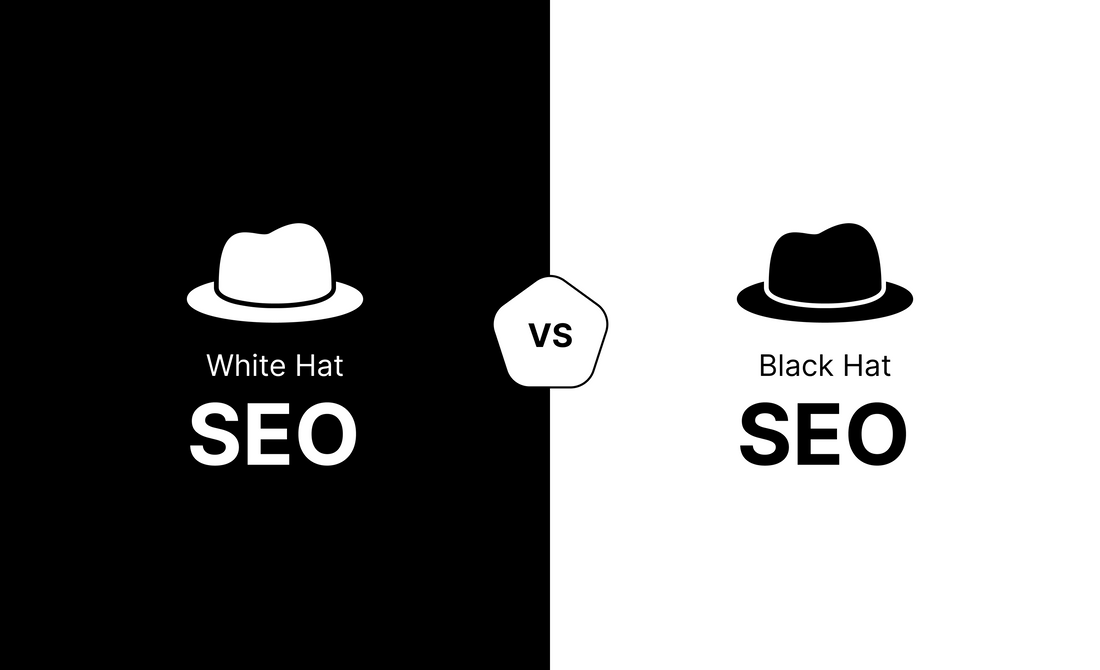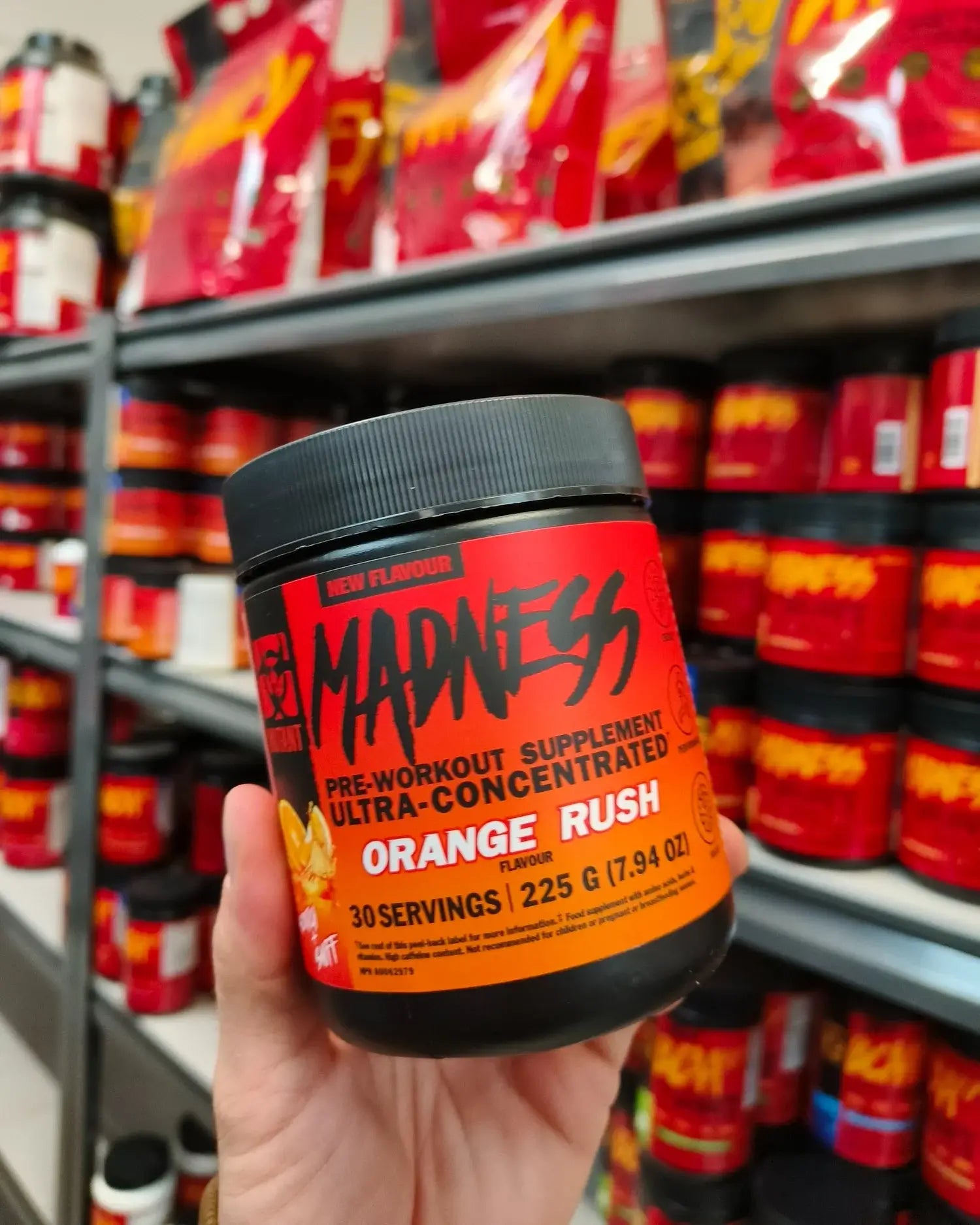White Hat SEO vs Black Hat SEO: What Not To Do
Black hate SEO
SEO
White hat SEO

White hat SEO and Black hat SEO impacts your ranking in completely different ways.
Your SEO strategy can backfire if you do not understand them properly. In today’s blog, we will highlight the basic differences between them and some tactics that you should completely avoid using.
Understanding White Hat SEO and Black Hat SEO
Let us first go through the basics of what is white hat SEO.
White hat SEO refers to the practise of using highly relevant content to improve your search engine rankings. This is done all the while adhering to search engine guidelines.
We all know the basic fundamentals that content is king. Using high-quality content to attract and engage your audience is the very basic principle of white hat SEO.
Beyond content, it includes other factors but not limited to:
- Mobile friendly
- User-friendly
- Fast load times
Another significant element that you can use is ethical backlinks. You can rank higher in search engine results through genuine content collaboration and outreach.
Also read on how to know the quality of backlinks in Shopify SEO.
Now let us go through about black hat SEO.
Black hat SEO involves using strategies and tactics to trick the search engine algorithm. But this is often done at the expense of good user experience.
Using aggressive black hat SEO techniques might give you good results in the beginning. But it will not be long before Google will catch this trick and make you disappear from search engine results.
So, what exactly happens when Google catches up with SEO strategies it does not like? It changes its algorithm so that it does not work any longer.
One other thing that it does is that it individually penalizes offending websites.
Here are some potential penalties that you can face if you do not follow the guidelines:
- Your website page will sink lower in SERPs which will result in low traffic and visibility.
- The site can be removed entirely from the index meaning that it won’t be visible in any search results.
- Loss of eligibility for special features such as featured snippets.
- Google can also issue a manual warning specifying the violations that need to be addressed before ranking in search engine results.
Do We Have Grey Areas For SEO?
We do have something called the grey hat SEO - A weird space between white hat and black hat SEO. The strategies used in grey hat SEO are not completely outright discarded but it also does not come under ethical SEO practices.
White Hat SEO vs Black Hat SEO: A Comparative Analysis
Let us understand the difference between white hat SEO and black hat SEO with a table.
|
Point of difference |
White Hat SEO |
Black Hat SEO |
|
Definition |
Ethical SEO practices that follow SERP guidelines. |
Unethical SEO practises that manipulates SERP for quick results |
|
Goal |
Long term growth |
Short term growth |
|
Approach used |
Relevant content, keyword research, on-page optimization, link-building, mobile optimization, user experience improvement. |
Keyword stuffing, cloaking, hidden text, link schemes, spammy backlinks. |
|
Content quality |
High quality and relevant content |
Low-quality and plagiarized content |
|
Keywords |
Naturally integrated and well researched |
Excessive keyword stuffing |
|
Link building |
Acquiring quality backlinks from reputable and relevant sites naturally |
Manipulative link schemes, buying links, or using link farms |
|
User experience |
Prioritizes user satisfaction |
Typically disregards user experience |
|
Guidelines compliance |
Fully adheres to Google’s Webmaster Guidelines and search engine policies |
Violates search engine guidelines, risking penalties |
|
Viability |
Sustainable and builds a trusted reputation |
Risky with potential for sudden drop in rankings |
|
Penalty |
Low risk of penalties |
High risk of penalties |
|
Examples of techniques |
Content optimization, on-page SEO, genuine link outreach, social media promotion. |
Cloaking, doorway pages, hidden text, keyword stuffing, spammy comments. |
|
Cost and time invested |
Requires more time and investment |
Initially faster and cheaper but costly in long-term |
|
Results duration |
Long-lasting effects |
Short-term effects |
|
Impact on brand image |
Improves credibility and authority |
Damages brand credibility |
|
Tools used |
Google Analytics, Ahrefs, SEMrush, Moz (for ethical SEO insights) |
Automated tools for mass link creation or keyword spamming tools |
8 Black Hat SEO Strategies That You Should Never Use
We will discuss 8 black hat SEO tactics that should be completely avoided if you want to rank in SERP.
#1 Stuffing content with keywords
The excessive and unnatural use of keywords in content to rank higher in search results is known as keyword stuffing. This tactic involves continually introducing keywords in ways that break the content's flow and harm the user experience. For instance, "Our bakery in New York is the best bakery in New York for anyone looking for a bakery in New York" is an example of a statement that is overflowing with keywords.
In addition to making content less readable, keyword stuffing is against search engine guidelines. Google's algorithm can quickly identify excessive keyword usage and can penalize your website. Instead, focus on organic keyword integration and strive for excellent, relevant material that attracts readers without sacrificing readability.
Read our comprehensive guide on how to leverage trending keywords as per your niche.
#2 Cloaking
Cloaking is a technique in which consumers and search engines see separate content. To get higher ranks, a website might, for example, show search engines keyword-rich content, while real users would view a separate, irrelevant page.
Cloaking is a significant offence since it deceives search engines.
If discovered, your website can be subject to harsh sanctions including de-indexation. A better strategy is to provide content that is beneficial to people and search engines alike, highlighting topics that actually benefit readers. Transparency and relevancy are crucial to building trust and ensuring long-term success.
#3 Hidden texts and links
Hidden text and links are placed within a webpage in a way that’s invisible to users but readable by search engines. These could include placing text behind images, using white text on a white backdrop, or resetting font sizes to zero. The intention is to alter rankings by secretly adding links or more keywords without users seeing.
Modern search engines can easily spot this strategy, and websites that use hidden text or links run the danger of being penalised or banned. Instead, make sure your content meets user expectations and use links that are easy to see and use. Keep in mind that both users and search engines should be able to easily understand and understand the information you provide.
#4 Content duplication and scraping
Scraping, often known as content duplication, is the practice of stealing content from other websites and republishing it as your own. This is typical of content farms, where copied, low-quality articles are posted for traffic without any unique content. Google's algorithms, however, favour unique content and have the power to penalize websites that use duplicate content.
Spend effort creating original, valuable articles that present fresh perspectives or facts rather than copying content. In addition to increasing trust, original material increases your chances of ranking better since Google favours websites that put quality first.
#5 Paid links and link farms
Link farms are collections of websites that use backlinks to increase their rankings. Similarly, buying links from other websites is against Google policy since they are meant to trick search engine algorithms rather than offer legitimate suggestions.
Both tactics are extremely dangerous and can result in manual penalties, which will drastically lower the ranking of your website. Creating high-quality content that other websites value enough to link to is a safer and more efficient way to naturally build backlinks. Quality backlinks are essential to SEO, but they should always be gained organically.
#6 Doorway pages
Doorway pages, sometimes referred to as "gateway" pages, are made to reroute people to another page while ranking for particular keywords. They frequently give the impression of having a lot of material, but their only purpose is to direct users to another area of the website or other domain. This tactic deceives search engines and gives users a bad experience.
Google penalizes sites using doorway pages, and it can be challenging to recover from these penalties. It is preferable to optimize current landing pages for user intent, offering content that actually responds to user enquiries without misleading redirection.
#7 Click baits and misleading meta descriptions
The goal of clickbait titles and misleading meta descriptions is to entice visitors to a website by making false claims about content. For instance, the title may read, "Top 10 Secrets to Becoming a Millionaire," but the text itself offers no useful information. Although they may initially result in more clicks, misleading descriptions lead to low user engagement and high bounce rates.
Search engines track bounce rates and other engagement metrics, so consistently using misleading titles can harm your ranking over time. Rather, create honest and engaging titles and descriptions that accurately represent the content to gain readers' trust and encourage repeat visits.
Why Do We Advise You To Wear The White Hat?
Relying solely on white hat SEO techniques guarantees long-term legitimacy, user trust, and sustainable growth. By putting quality, relevancy, and user satisfaction first, white hat strategies comply with search engine criteria and protect against penalties that could negatively affect rankings.
Unlike black hat methods, which may offer short-lived gains but come with high risks, white hat SEO builds a strong foundation by focusing on valuable content, genuine link-building, and a positive user experience.
By using ethical SEO techniques, you can strengthen your website's reputation while also ensuring long-term success in the rapidly changing digital market.
CrawlApps
At CrawlApps, we don’t just build Shopify stores—we create experiences that sell. We’re a bunch of problem-solvers who love turning ideas into stores that actually converts. Whether it’s fixing what’s broken or building something from scratch, we make sure every detail works in your favor. No fluff, no jargon—just real solutions that help your business grow. If you’re serious about Shopify, you’ll feel right at home with us.















